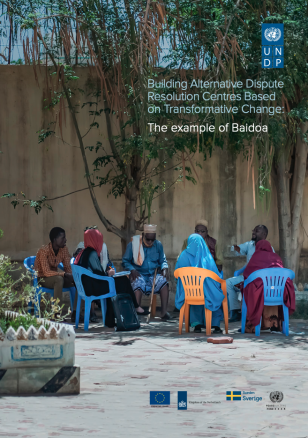Building Alternative Dispute Resolution Centres Based on Transformative Change: The Example of Baidoa

Building Alternative Dispute Resolution Centres Based on Transformative Change: The Case of Baidoa
pdf (1.6MB)
DownloadBuilding Alternative Dispute Resolution Centres Based on Transformative Change: The Example of Baidoa
October 13, 2021
In 2019, the UNDP Somalia and the UN Joint Justice Programme introduced Non-Violent Communication (NVC) training at the Alternative Dispute Resolution (ADR) center in Baidoa. The aim was to address discriminatory social norms, particularly towards women, and to build new skills in conflict resolution.
This new report examines the changes that occurred as a result of the training at three levels: individual and interpersonal relations, the ADR center, and the wider community. The report outlines various changes, including increased ability to communicate, increased ability to recognize emotions, and greater participation of women leaders in dispute resolution.
The report also makes recommendations for the future, including sustained engagement over a long period and providing NVC training for all ADR centers.
The work in Baidoa was funded by the European Union, the Netherlands, Sweden, and the UN Peacebuilding Fund.

 Locations
Locations



